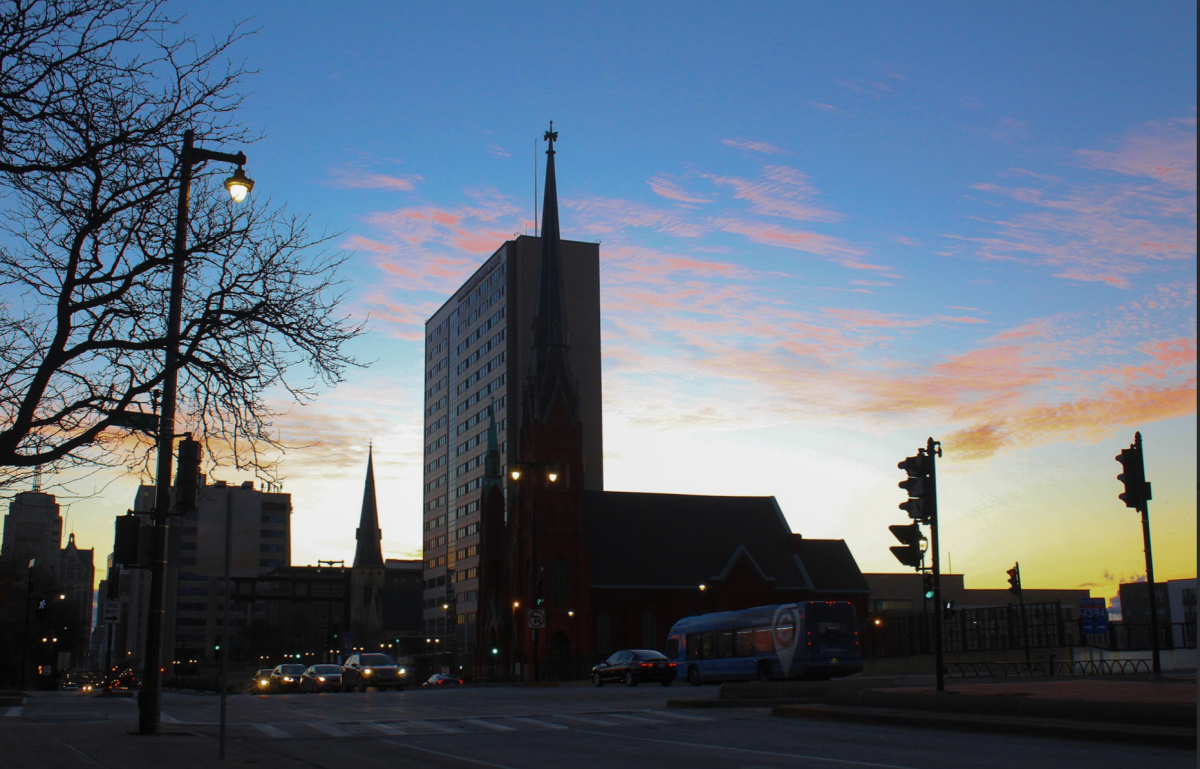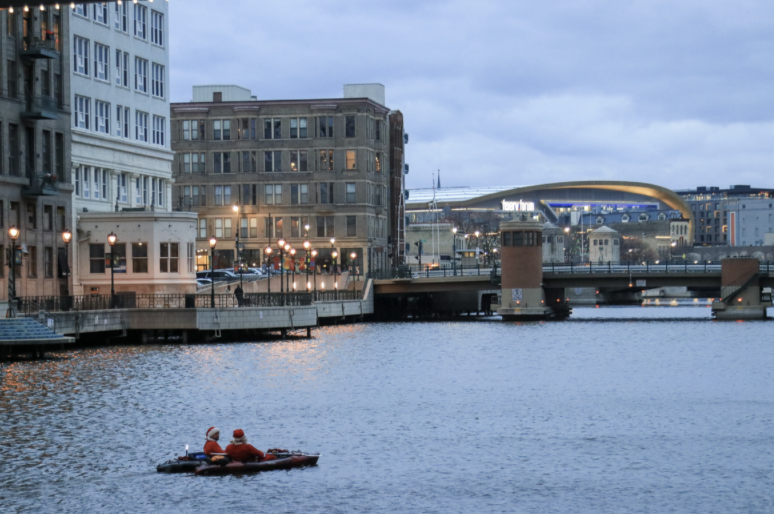A study comparing the amount of bars to the amount of grocery stores in an area recently exposed what many may already expect: Wisconsin is part of the “beer belly of America.” In fact, Wisconsin forms the bulk of the gut, complete with stretch marks that roll all the way to Montana and pour into central Illinois.
The February study, conducted by research blog site FloatingSheep.org, found that there are more bars than grocery stores in the state. Wisconsin has 5.88 bars per 10,000 residents — the third-highest rate in the nation. North Dakota and Montana topped the list at 6.54 and 6.34 bars per 10,000 residents, respectively. The national average is 1.52 bars per 10,000.
Similar investigations by Floating Sheep have included a look into where churches have more influence compared to bookstores and a nationwide comparison of where pizza parlors, gun shops and strip clubs are most prevalent.
Students can see first-hand results of the study on bars and grocery stores just by walking to class.
There are three bars in the immediate vicinity of university-run dorms and apartments — Caffrey’s, Murphy’s and Jim Hegarty’s Pub – and only three places that could even dubiously be considered grocery stores — Kampus Foods, Walgreen’s and Open Pantry.
“It’d be nice to have (a grocery store) nearby,” said Michael Charny, a sophomore in the College of Business Administration.
David Livingston, a local supermarket location researcher, chalks up the prevalence of bars in Wisconsin to two things — the state’s drinking-based culture and the unique shift in supply and demand that drinking culture creates in the state.
“Where I used to live in Oklahoma, they would never serve beer at a church function, but here, beer is a staple of the Catholic fish fry,” he said.
Livingston said it may be harder to open grocery stores as opposed to taverns because of the need for more space, governmental permission and capital investment.
Was the revelation that Wisconsin operates more taverns than supermarkets at all shocking to students?
“Not one bit,” said Michael Sonnek, a sophomore in the College of Business Administration.
Charny added, “It seems like everyone in Wisconsin likes to drink.”
While this discrepancy does exist, Floating Sheep’s choice to compare taverns to grocery stores is an arbitrary one and doesn’t necessarily reflect an imbalance in the ratio between the two, Livingston said. Supply and demand will dictate whether the region needs another supermarket or another bar, he said.





